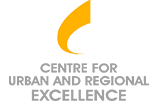Cause Area
Primary Sectors
Secondary Sectors
Financials
-
2019
Total IncomeRs.59,544,667Total ExpensesRs.58,555,485Non Program ExpensesRs.37,020,890Program ExpensesRs.21,534,595Tip: Click on any value above to exclude it. -
2020
Total IncomeRs.137,353,000Total ExpensesRs.130,344,000Non Program ExpensesRs.9,124,080Program ExpensesRs.121,219,920Tip: Click on any value above to exclude it.
Geographies Served
Programs
-
INCLUDe Programme
(INCLUDe) is a collaborative network and platform led by CURE, dedicated to advancing the cause of slums and low-income settlements. This initiative brings together various Indian NGOs, including SPARC, MHT, Shelter Associates, South Asia HomeNet, Habitat for Humanity, India, YUVA, and CURE, aiming to empower communities and cities through participatory development. It aspires to create a more inclusive framework that harnesses government resources and programmes. Additionally, (INCLUDe) collaborates with research institutions and Think Tanks like NIUA, HSMI, UN Habitat, UNDP, The World Bank, USAID, and GIZ to foster advocacy and nurture the next generation of NGOs dedicated to this cause.
-
Water & Sanitation Programme
District
New Delhi
Agra
Gangtok
States
Delhi
Sikkim
Uttar Pradesh
CURE's Water & Sanitation efforts cover a broad spectrum of projects, including capacity-building programmes like USPaCES and collaborative ventures such as PASS and "Building Water Resilient Neighborhoods." It actively contributes to enhancing urban sanitation practices, exemplified by its work on social strategies for water supply and environmental sanitation in Gangtok and the localization of sanitation development policies through Ward Sanitation Plans in Delhi. CURE's practical contributions include the establishment of the Faecal Sludge Treatment Plant in Gokalpuri, East Delhi, and their support for cluster septic tanks and simplified sewer systems in Savda Ghevra, Delhi. It also prioritizes social dignity and well-being through initiatives like "Swatch Delhi-Swasth" and "Shauch, Sharam, Samajikaran, Swabhiman." Overall, CURE is dedicated to improving water and sanitation conditions in urban areas through a multifaceted approach.
-
Housing Programme
District
New Delhi
Gangtok
States
Delhi
Sikkim
CURE, the Centre for Urban and Regional Excellence, engages in a range of impactful initiatives to enhance living conditions in urban areas. Its Housing projects are designed to uplift marginalized communities. In Gangtok, it collaborated with the Urban Development and Housing Department of Sikkim to implement the Rajiv Avas Yojna (RAY), creating a tailored framework for slum development. This involved comprehensive mapping, surveys, and community consultations, ensuring contextually relevant solutions for each slum and integrating them into the city. In Delhi's Savda Ghevra resettlement area, CURE executed the Pocket Reconstruction Project, focusing on maximizing housing spaces for low-income households through innovative design solutions, including space optimization and disaster-proof construction techniques. These housing initiatives showcase CURE's commitment to addressing urban housing challenges with creativity and practicality.
-
Slum Upgradation Programme
District
Raipur
Khordha
Ludhiana
Sundergarh
Agra
Gangtok
States
Chhattisgarh
Delhi
Punjab
Sikkim
Uttar Pradesh
Odisha
CURE engages in a wide range of urban development projects across various locations in India and Bhutan. These initiatives encompass slum upgrading efforts, sanitation development, housing, and community capacity building. Examples include the Slum Networking for Home Toilets in Delhi, Cluster Septic Tank and Simplified Sewer System in Savda Ghevra, Delhi, and the implementation of the Rajiv Avas Yojna in Gangtok. CURE also participates in crosscutting programs like the Agra Program and Kuchpura Slum Upgrading in Agra. Their work extends to urban planning, redevelopment, and sanitation policies, aiming to create inclusive, resilient, and sustainable urban environments.
-
Participatory Planning Programme
District
Raipur
New Delhi
Khordha
Ludhiana
Agra
Gangtok
States
Chhattisgarh
Delhi
Punjab
Sikkim
Uttar Pradesh
Odisha
CURE is actively involved in participatory planning efforts across various regions. Its work includes localizing sanitation development policies by preparing Ward Sanitation Plans in Delhi and implementing the Slum Free City Plan of Action in Ludhiana. In addition, CURE is engaged in citywide slum upgrading planning in Agra, as well as the Kalyanpuri Insitu Redevelopment Plan in Delhi and the City Slum Upgrading Plan and Redevelopment Plan in Rangamatia, Bhubaneswar. It also focuses on in-situ slum upgrading and redevelopment in Raipur and contributes to urban improvement projects like the Taj East Drain Improvement Plan in Agra. Furthermore, CURE extends its efforts internationally, participating in the National Urbanization Plan and Thimpu City Development Strategy in Bhutan and developing a social strategy for a Water Supply and Environmental Sanitation Project in Gangtok.
Impact Metrics
-
Formal Education to Students and Professionals to Impart Knowledge of Confronting Climatic Changes and Its Impact on Urban Informal Settlements
Program Name
Education
Year-wise Metrics- 2018-19 19635
- 2019-20 6500
-
Total Outreach
Year-wise Metrics- 2018-19 405821
- 2019-20 1097100
Registration Details
-
Registration Number
12890/4
-
CSR Form 1
Not Available
-
FCRA
231660668
About
-
Headquarters
New Delhi, Delhi
-
Since
2001
Impact
CURE's impact spans 15 cities, reaching 150 settlements, with an outreach benefiting over 140,000 individuals, and it has introduced 25 innovative solutions to urban challenges.
Vision and Mission
CURE's mission is to achieve reconnected urban societies that take informed decisions to ensure sustainable urban development, strengthen local agencies with capacities for participatory community development, and build real evidence from the ground up for effective service delivery.
Political & Religious Declarations
-
Political Affiliation
-
Religious Affiliation
Location
-
Offices in Cities
Delhi
Other Details
-
Type
Non-profit
Website
Technology Adoption
-
SOC 2 Compliant
No
-
Financial Management
-
Beneficiary Management

